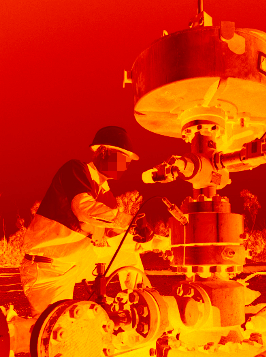Coroner calls for hot work standards
 Queensland’s coroner has urged industries to stop outdoor work in extreme heat to prevent worker deaths.
Queensland’s coroner has urged industries to stop outdoor work in extreme heat to prevent worker deaths.
Coroner John Hutton has issued the recommendations as part of his ruling on the 2013 death of construction worker Glenn Newport near Roma in Queensland's southern inland.
The 38-year-old died after collapsing in extremely hot conditions while working on a coal seam gas (CSG) pipeline construction project.
The coroner said Mr Newport's death highlights “substantial deficiencies” in the way heavy construction industry leaders deal with heat exposure.
“I was somewhat startled to learn that there is in effect no industry standard or ‘best practice’ in relation to the management of heat in the heavy construction industry,” the coroner has told reporters.
“Mr Newport was an extremely muscular and physically fit man.
“Even among such labourers, he was regarded as particularly strong, and was nicknamed ‘Grievous’ in reference to a robotic character from the Star Wars movies, who was built to resemble a particularly well-muscled human.”
Mr Hutton said there should be an agreed temperature threshold beyond which outdoor work must stop.
He also called for more night work in hot areas.
Mr Newport's employer McConnell Dowell issued a statement noting the coroner’s findings.
“The company ... endorses the coroner's recommendation for the development of an industry code of practice to guide industry in relation to the prevention and management of heat injury to avoid a similar tragic death occurring,” the statement said.
“McConnell Dowell acknowledges that this has been and continues to be a difficult time for Mr Newport's family and once again sympathises for their loss.”
The CFMEU has previously complained about the lack of heat stress policies on Queensland work sites.
In Victoria, the union has a policy to discuss heat-stress-minimisation whenever the temperature is expected to reach 35 degrees Celsius.
When the temperature does actually approach 35 degrees, the standards call for workers to be relocated out of direct sunlight.
Dr Liz Hanna from the Australian National University has told ABC reporters that people tend to overestimate their safe temperature threshold.
She said there were a lot of factors that push people to work in hot conditions, even if they feel unsafe.
“Particularly when people have got motivation to do so - so that could be pressure to finish a job, that could be pressure from colleagues to keep going [like] ‘don't be a wuss’, employers insisting that it has to be done,” she said.







 Print
Print